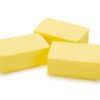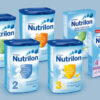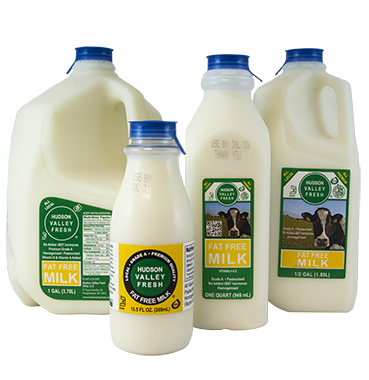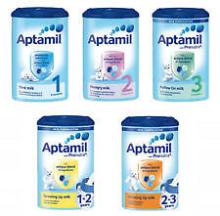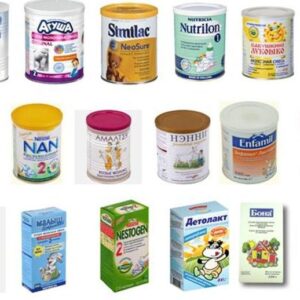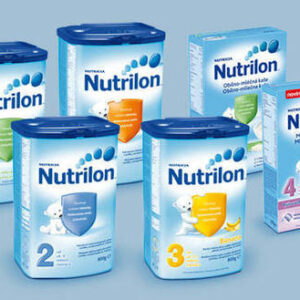Historically, skimmed milk was used for fattening pigs, and was recommended as “not only the very best supplement for growing pigs, but is of almost equal value for fattening purposes” as it “furnishes a complete protein” and makes the feed “more palatable”.
Today, depending upon one’s health condition and dietary regimes, there is a wide variety in milk available for consumption. Starting off the basics, cow’s milk is generally categorized into the following basic types as per its fat content:
- Whole milk/ full-fat milk/ vitamin D milk- It contains at least 3.25% fat, and zero fat is extracted from the milk during processing.
- Reduced-fat milk/ “2% milk”- It carries about 2% fat; while some amount of fat is removed, it still possesses a bit of the creaminess and flavor of whole milk.
- Skimmed milk/ skim milk/ non-fat milk- since all the cream is completely removed, it then carries zero fat content.
It was earlier thought that foods that have more fat content were bad. However, newer research demonstrates that it’s the type of fat that is a more decisive factor than the consumed quantity of any kind of fat. Interestingly, newer studies suggest that higher fat consumption from dairy and other sources is associated with reduced risks of stroke and death not caused by cardiovascular disease.
Skimmed milk, also known as skim milk, fat-free milk, or non-fat milk, is a popular milk variety obtained by removing all the cream from whole milk, therefore carrying around 0.1% fat only and much fewer calories compared to full-fat milk. Thus, it may be fortified with vitamin A and vitamin D since these fat-soluble vitamins are often lost in the fat-removal process. Some other key nutrients in it are calcium, vitamins B2 and B12, and phosphorus.
Skimmed milk has a host of associated health benefits as well, such as controlled blood sugar levels, weight loss and management, improved muscle function, good bone mineral density, and regulated blood pressure and cholesterol levels.
Some types of skimmed milk are: non-fat dry milk (in a powdered form, without water and cream); concentrated skimmed milk (has only some water content removed, and contains more protein, natural sugar, vitamins, and minerals); reconstituted skimmed milk (non-fat dry milk with added water); and, organic skimmed milk (milked from cows served only with organic feed).
SKIMMED MILK VS REGULAR MILK
As mentioned above already, the difference between these two milk varieties is that while whole milk has a fat content of at least 3.25% with no fat being removed during its processing, skimmed milk is processed to remove all and any milk fat in it- thus, it is not creamy too.
Presently, skimmed milk has emerged as a popular choice because it has lesser fat content and calories compared to whole milk, and because it does not increase your “bad” cholesterol as much.
Whole milk has a poor reputation because it carries higher saturated fat content and may raise cholesterol. When you consume whole milk, your LDL (“bad” cholesterol) rises more than if you consumed skimmed milk. However, the saturated fats in whole milk and dairy products also increase your HDL (“good” cholesterol) levels- skimmed milk may be a more suitable pick if one is monitoring their saturated fat intake.
But both of these share some basic commonalities- they nourish the body with same vitamins and minerals, such as vitamins A and D; they are rich sources of calcium, thus properly maintaining your dental and bone strength; and, both contain potassium (good for controlling blood pressure) and protein (positively lending to the tissue- and body-building processes).
BENEFITS
Listed below are the many subtle yet powerful and long-lasting benefits linked with regular consumption of skimmed milk. And on an added note, studies indicate that drinking organic skim milk is ideal because it is sourced from cows that are given organic feed. Thus, their milk is more nutrient-rich and contains more omega-3 fatty acids, which are an energy source and ensure that your heart, lungs, blood vessels, and immune system are all functioning properly.
-
Lean Muscles
It is a good source of protein, packed with all essential amino acids, which are key for building and retaining lean muscle mass.
-
Blood Sugar Levels
Present in skimmed milk are proteins like whey and casein, that are responsible for its regulating effect on blood sugar, thus helping keep issues such as diabetes at bay.
-
Muscle Function
Calcium, which is present in skimmed milk, is necessary for optimum muscle and overall nervous system functioning. This ultimately results into enhanced physical functioning as well as sharper reflexes.
-
Weight Loss
With only half the calories of whole milk, skimmed milk can contribute positively towards weight loss efforts and for regulating one’s daily calorie intake.
-
Growth & Development
Since it contains a beneficial amount of protein, it can promote ideal growth and development of cells, tissues, muscles and bones. This eventually ensures that all of the body’s developmental processes are carried out seamlessly.
-
Cholesterol levels and Heart Health
Some studies have shown that people who turned to consume skimmed milk eventually had both their general cholesterol as well as “bad” cholesterol levels coming down. Thus, it helps to reduce the chances of atherosclerosis, and thus safeguards against other cardiovascular problems, including strokes and heart attacks.
-
Bone Mineral Density
The rich density of minerals is perfect for promoting bone strength and minimizing the possibility of developing osteoporosis at a young age, thus allowing one to feel strong despite aging progressively.
-
Blood Pressure
The potassium in skimmed milk can help to regulate blood pressure by reducing the strain and tension in blood vessels and arteries. This further boosts heart health as well as mental health by lessening the amount of stress experienced.
Skim milk is a fresher alternative for all those who wish to bring down their calories intake and regulate the amount of dairy fat they consume. With a variety of other benefits, it is a beneficial choice for a healthy body!

